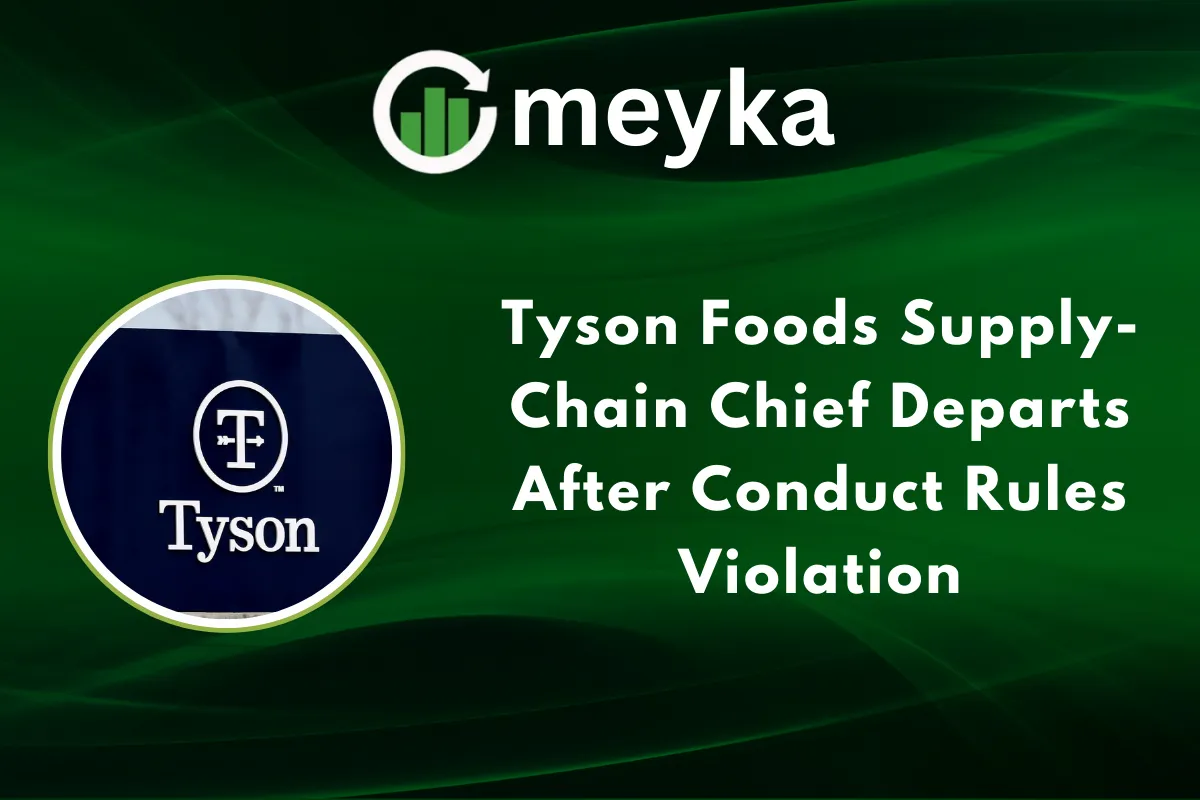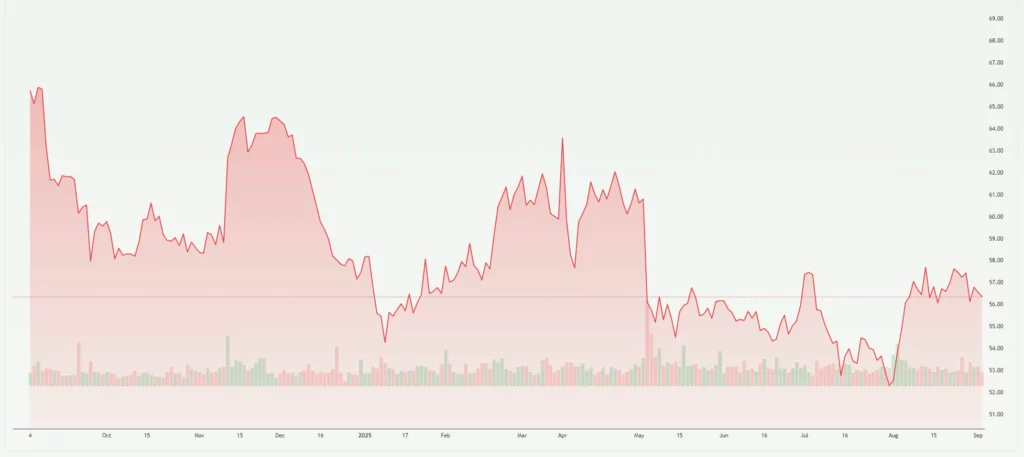Tyson Foods Supply-Chain Chief Departs After Conduct Rules Violation
Tyson Foods faces another leadership shakeup as Brady Stewart exits his role as chief supply chain officer. The company announced Stewart’s immediate departure after determining his actions violated the Tyson Foods code of conduct. This marks the second major executive change for the meat processing giant in recent months.
The departure adds to ongoing management restructuring at Tyson Foods. Former CFO John R. Tyson was suspended last year after police arrested him for driving while intoxicated and careless driving.
The company continues addressing leadership stability issues that may impact its stock market performance.
Executive Leadership Changes at Tyson Foods
Brady Stewart’s Unexpected Exit
Brady Stewart joined Tyson Foods in January 2023 as chief supply chain officer. His departure was announced late September 2 after the company determined certain actions violated its code of conduct. The company provided no additional details about the specific violations.
With Stewart’s departure, supply chain, food safety, health and safety, environmental, and transportation functions will report directly to President and CEO Donnie King. This restructuring consolidates key operational areas under direct CEO oversight.
The timing raises questions about Tyson Foods internal controls. Stewart’s brief tenure suggests potential gaps in executive vetting processes that could concern stock market analysts.
Devin Cole’s Promotion to COO
Devin Cole, previously head of the poultry business, was named chief operating officer. His appointment represents internal talent advancement during challenging times for Tyson Foods. Cole was promoted to group president of poultry in February, succeeding Wes Morris.
Cole’s background in poultry operations brings operational expertise to the COO role. His promotion may help stabilize Tyson Foods leadership structure and reassure investors about management continuity.
Impact on Tyson Foods Stock Market Performance
Leadership Stability Concerns
Repeated executive departures create uncertainty for Tyson Food in the stock market. Investors typically view frequent leadership changes as red flags for corporate governance and operational stability. The company must demonstrate effective succession planning to maintain investor confidence.
Key factors affecting stock performance:
- Executive turnover frequency
- Governance compliance issues
- Operational continuity risks
- Investor confidence levels
Market Response and Analyst Views
The stock market reaction to leadership changes often reflects broader concerns about company direction. Cole and CFO Curt Calaway are scheduled to speak at an investor conference on Thursday. This presentation provides an opportunity to address investor concerns about recent changes.
Tyson Food must communicate clear strategic direction despite ongoing leadership transitions. The company’s ability to maintain operational performance while addressing governance issues will influence stock market sentiment.

Financial and Operational Implications
Supply Chain Leadership Vacuum
Stewart’s departure creates a temporary leadership gap in critical supply chain operations. Tyson Food must quickly identify permanent leadership for these functions to avoid operational disruptions. Supply chain efficiency directly impacts profitability and stock market valuation.
The company’s decision to have these functions report directly to CEO King suggests immediate attention to operational continuity. This structure may be temporary while searching for Stewart’s replacement.
Corporate Governance Focus
Curt Calaway was named CFO in August 2024 following John R. Tyson’s suspension. The appointment of new financial leadership alongside operational changes demonstrates Tyson Food commitment to governance improvements.
Enhanced corporate governance measures may include:
- Strengthened code of conduct enforcement
- Improved executive oversight processes
- Better risk management protocols
- Enhanced compliance monitoring
Industry Context and Competitive Position
Food Processing Sector Challenges
Tyson Foods operates in a highly competitive food processing industry facing multiple pressures. Labor shortages, supply chain disruptions, and changing consumer preferences create operational complexity requiring stable leadership.
Executive instability may impact Tyson Foods ability to compete effectively. Competitors with stable management teams may gain market advantages during this transition period.
Investor Expectations
Stock market investors expect food processing companies to maintain consistent leadership and operational performance. Tyson Foods must balance addressing governance issues while demonstrating business continuity.
The company’s stock market performance will likely depend on successfully managing leadership transitions without disrupting core operations. Clear communication about future leadership plans remains essential for investor confidence.
Future Outlook for Tyson Foods
Leadership Succession Planning
Further leadership updates are expected before the 2026 fiscal year begins on September 28. This timeline suggests Tyson Foods is conducting comprehensive leadership evaluation and planning processes.
Effective succession planning could strengthen Tyson Foods position in the stock market by demonstrating proactive governance. The company must balance internal promotions with external talent acquisition to build a stable leadership team.
Strategic Direction Clarity
New leadership appointments provide opportunities to refine Tyson Foods strategic direction. Cole’s operational background may bring fresh perspectives to corporate strategy and execution.
The upcoming investor conference represents a crucial opportunity to communicate strategic priorities and address stock market concerns about recent changes.
Disclaimer:
This is for informational purposes only and does not constitute financial advice. Always do your research.







